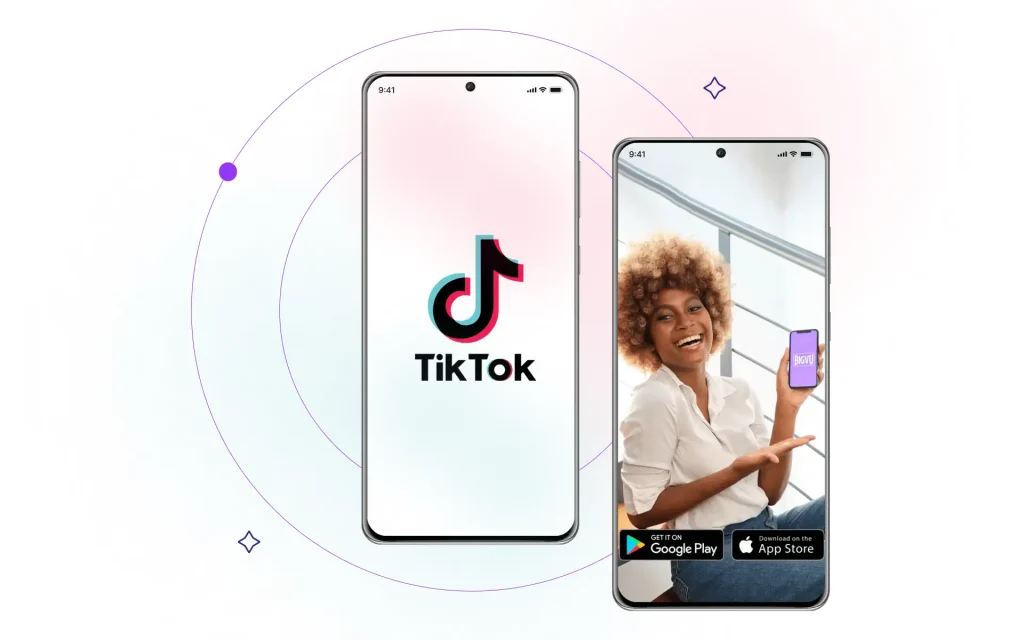Why Influencer Marketing is Crucial for Small and Medium Enterprise (SMEs) in Malaysia Nowadays

In today’s digital age, social media is a very important platform in connecting with customers. This situation causes traditional marketing to face threats. In fact, Malaysian SMEs are also almost not left behind. Businesses of all sizes are now given access to new and effective tools used today, namely influencer marketing that can help them connect and interact with consumers. This way is easier and profitable for both parties. This current trend causes important changes in the marketing of a product or service for all Malaysian small and medium enterprises (SMEs). Therefore, this article discusses why influencer marketing is now important for these businesses in Malaysia.
The Rise of Influencer Marketing
Collaboration between brands and individuals who own an active social follower as well as are seen as officials in the area they specialize in makes influencer marketing. The buying habits of consumers might be greatly influenced by these influencers due to their popularity, expertise, or connection with their followers. The rise of influencer marketing can be attributed to several factors:
a) Social Media Penetration: Malaysia is experiencing a massive social media penetration level, including platforms that include Instagram, Facebook, and YouTube in frequent use. Thus, SMEs have an extensive range of potential consumers to pursue via influencer partnerships.
b) Decline in Traditional Advertising: Traditional marketing methods that include television, radio, and print commercials are gradually losing effectiveness, specifically among youths known to have become more engaged on social media and prefer suggestions from peers or influencers.
c) Authenticity and Trust: Users are growing to appreciate sincerity and are far more inclined to accept ideas from individuals they follow and enjoy on social media. Influencers typically develop close connections with people who follow them, which leads to strengthened relationships.
d) Targeted Reach: Influencer’s approach certain groups and demographic information, enabling SMEs to prioritize branding and advertising effectively. Although, in comparison with traditional marketing efforts, such a personalized plan offers higher rates of conversion and ROI.
e) Consumer Engagement: Influencer marketing enables SMEs to communicate with their target audience in a more engaging and personalised way. Unlike traditional advertising, which broadcasts information to a passive audience, influencer marketing promotes two-way communication and conversation. Engaging with influencers allows SMEs to respond to consumer inquiries, handle concerns, and gather feedback in real time, establishing a feeling of community and connection with their customers. This increased level of involvement not only improves brand-consumer connections, but it also boosts brand loyalty and advocacy.
The Malaysian Context
In Malaysia, influencer marketing has seen exponential growth in recent years, driven by factors unique to the local market:
1. Being Genuine and Relevant to Culture
The needs of consumers and behaviors in Malaysia are significantly impacted by the diversity of cultures. If small and medium-sized enterprises (SMEs) intend to be genuine and engage with their target audience in Malaysia, they must work together with local influencers who have proven fluent in the language as well as the culture. Marketing communication can be more effectively and relatably delivered by influencers that recognize Malaysian culture, whether through language, practices, or traditions.
2. Targeted Reach and a Diverse Pool of Influencers
Influencers in Malaysia originate from a variety of areas of life and consist of a wide range of interests, demographics, and specialities. Everyone may choose an influencer who responds to their particular interests in everything from travel and food to personal appearances and cosmetics. These varied groups of influencers can help small and medium-sized enterprises (SMEs) in Malaysia focus on certain categories for their advertising efforts. Influencers that connect with SMEs’ target markets and their values may help them communicate directly with a wide variety of viewers, from urban youths to rural households.
3. A Mobile-First Society and Easy Access to Digital Resources
Thanks to the country’s vast online infrastructure and high smartphone penetration rate, a growing number of Malaysians make use of their mobile devices to take part in social media. To connect with their target audience regardless of where they are located, SMEs should implement influencer marketing initiatives that have been optimized for mobile platforms. This is going to help them pique the interest of digital-savvy users. Influencers can help small and medium-sized enterprises (SMEs) improve content that connects with mobile customers and improves participation. Such content may include appealing to the eye, like Instagram posts, or interacting, like Facebook videos or TikTok challenges.
4. The Evolving Role of Digital Technology and the Internet
Increasingly, Malaysian companies went online and began employing digital marketing approaches after the COVID-19 pandemic pushed up the country’s technological transition. Whenever it involves engaging consumers online and boosting awareness of the brand, influencer marketing has become crucial for small and medium-sized enterprises (SMEs). With the assistance of influencers, small and medium-sized enterprises (SMEs) are able to broaden their appeal with prospective consumers, increase revenues, and make the best possible use of their own online platforms and social media networks.

Benefits for SMEs
Influencer marketing offers several benefits for SMEs operating in Malaysia:
1) Enhanced recognition of the brand: Partnerships with influencers enable SMEs to increase the visibility of their business’s value and attract greater numbers of people. Through utilizing the influencers’ present viewer origin, SMEs might immediately improve their reputation and recognition, particularly with those they want to reach.
2) Economical Marketing: Influencer marketing is frequently more affordable than traditional methods of marketing for small and medium-sized enterprises that have limited resources for advertising. Instead of pursuing pricey placements for advertisements, SMEs can work together with influencers at a range of pricing phases, which makes it affordable for enterprises of all sizes.
3) Engagement and interaction: Influencer marketing allow SMEs to establish real interactions and conversations with those they want to reach. SMEs can capitalize on influencers’ connections with their followers in order to begin interactions, receive feedback, and grow a following for their brand.
4) Authentic Content Creation: Influencers succeed at delivering trustworthy and useful material that has an impact on their target audience. By engaging with influencers, SMEs may apply their innovative thinking and story-telling talents to generate interesting content that automatically promotes what they sell.
5) Enhanced conversion rates: Influencers may impact buying choices through honest suggestions and testimonials. Whenever an influencer favors a product or service, those who follow them are naturally more likely to go along with their suggestion, which results in better conversion rates for SMEs.
Case Studies
To illustrate the effectiveness of influencer marketing for SMEs in Malaysia, let’s look at a couple of case studies:
Case Study 1: Local Fashion Brand
A small fashion label that specialized in modest clothing achieved phenomenal success with the help of influencer marketing. The brand successfully showcased its products by teaming up with influential hijab women who connect with their target audience on a cultural level. The campaign’s Instagram photos showcasing the influencers wearing the brand’s clothes caused quite a stir in the modest fashion world, leading to more people hearing about the brand and buying it online.
Case Study 2: Food and Beverage Startups
One food and drink firm used influencer marketing to spread the word about their new range of nutritious snacks. The firm successfully marketed its snacks as a healthy alternative by teaming up with influential food bloggers and health and wellness experts. An uptick in online purchases and favorable mentions of the brand across social media sites occurred when influencers shared their genuine opinions and suggestions with their followers.
Case Study 3: Beauty and Wellness Brand
A growing beauty and wellness brand wished to create an impact in the Malaysian market. Using influencer marketing, the company teamed with well-known beauty bloggers and skincare lovers to promote its natural skincare products. Influencers contributed engaging tutorials, honest evaluations, and testimonials, which helped the business gain substantial attention and trust from its target demographic. The influencers’ genuine endorsements raised company exposure, with many followers expressing an interest in testing the products themselves. As a result, the company saw an increase in online sales and favourable feedback, bolstering its position in the competitive beauty business.

Conclusion
In conclusion, the digital revolution has transformed customer behaviour, making influencer marketing an essential component of marketing strategy across industries. Besides, influencer marketing provides a low-cost and authentic way for Malaysian small and medium-sized enterprises (SMEs) to interact with their target audience, increase brand visibility, and eventually drive revenue. Collaborating with influencers who understand their audience and community allows businesses to generate captivating content that resonates with customers, increasing engagement and loyalty.
As the digital landscape evolves, influencer marketing will continue to be an important tool for organisations of any size. Whether it is a big corporations or SMEs, using influencer connections enables brands to keep a competitive advantage in the ever-changing world of social marketing. By using influencers’ influence and authenticity, businesses may adapt to shifting customer tastes and remain relevant in an increasingly competitive market.
In summary, influencer marketing provides Malaysian SMEs with an unprecedented potential to succeed in the digital age. Businesses that embrace this strong marketing technique may develop real connections with their target audience, generate brand growth, and confidently manage the intricacies of today’s marketing landscape.







